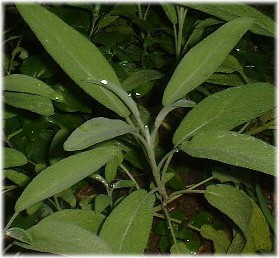|
Gardens Ablaze |
||
|
Medicinal
Uses of Sage |
||
|
Additional Sage Information
Growing Sage Site Map
Home |
Incidentally, you will often see Sage medicines advertised as Clary Sage. This is just another form of Sage that originates in the Mediterranean but has the same medicinal properties as the other sages. As an astringent, Sage can be used as a refreshing after-shave, and there is some indication that an infusion of it can be used to subtly color silver hair. As with many of the other herbs, Sage can also be tried in a tea for digestive problems and flatulence. In an exciting new study done in 2003, English scientists at Newcastle and Northumbria found that Sage oil extracts in capsule form produced markedly improved memory function in test subjects, and it is very possible that Sage may protect a key chemical destroyed in the brain by Alzheimer's disease. Better yet, no side effects whatsoever were reported by participants. Although studies are not complete at this time, this is very promising research and should be followed by anyone who has or is caring for someone with Alzheimer's.
Custom Search
|
|
|
Gardens Ablaze |
||
 The
oils and tannins in Sage have astringent, antiseptic, and irritant properties.
It is therefore an important herb in medications for mouth sores, mouth
ulcers, and sore throat medications (make
The
oils and tannins in Sage have astringent, antiseptic, and irritant properties.
It is therefore an important herb in medications for mouth sores, mouth
ulcers, and sore throat medications (make